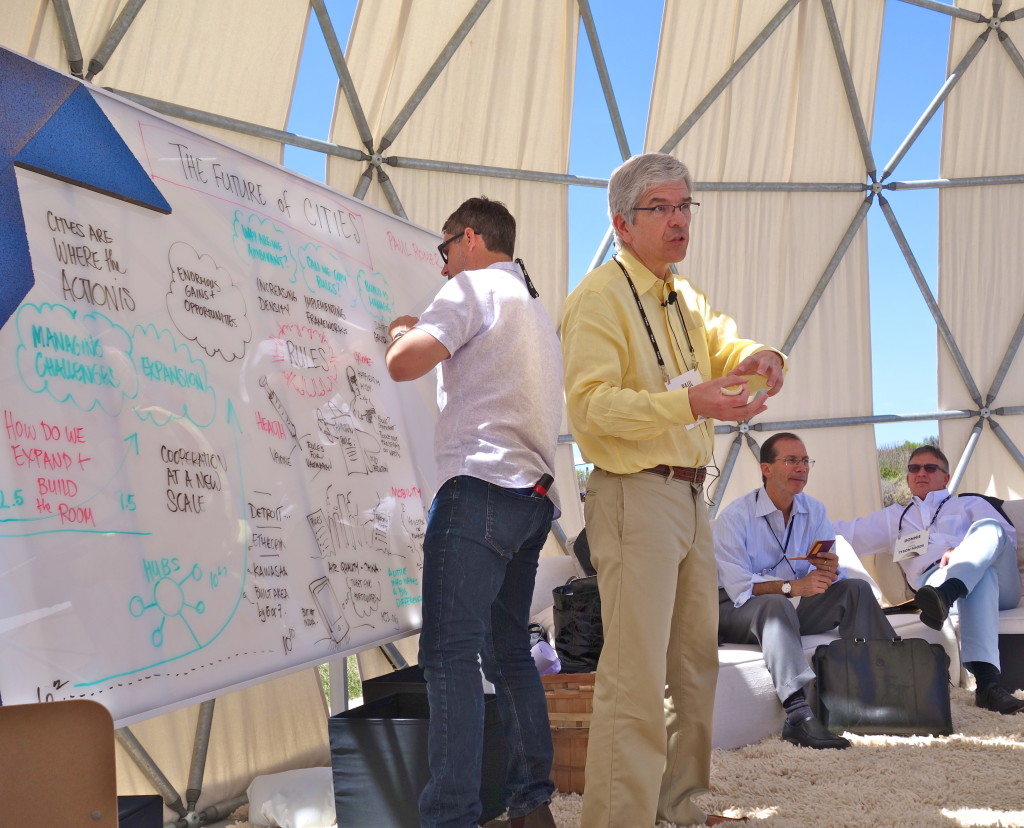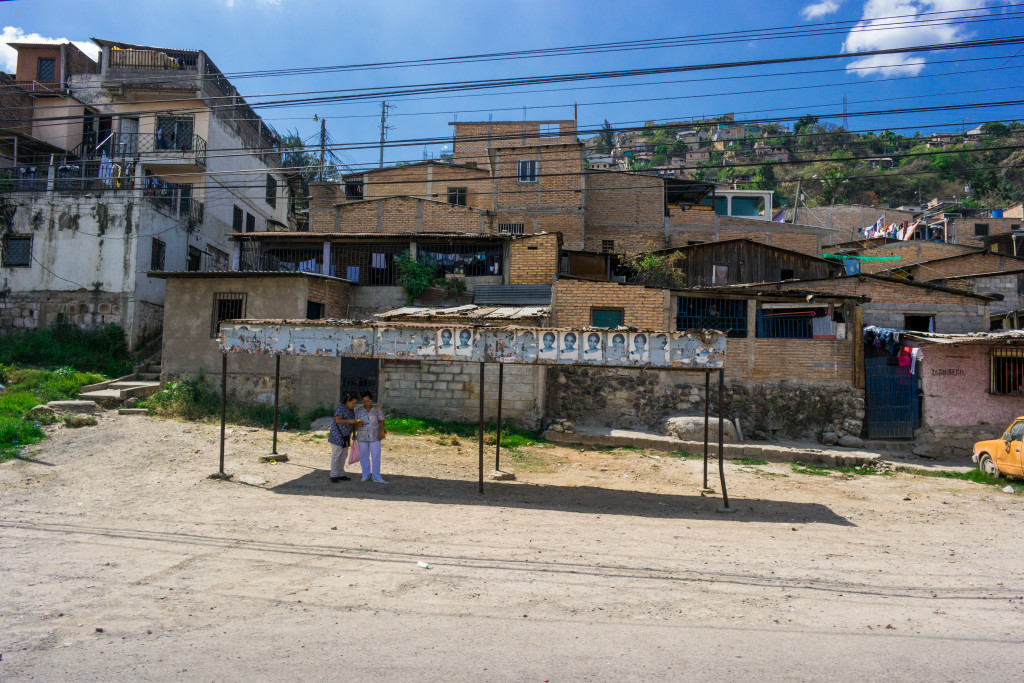Since its conception, the charter city has been condemned for violating the rights of the very people it aims to help. The few attempts to establish one have fallen apart due to fears – not wholly unwarranted – of the troublesome implications of building cities from scratch, with no prior infrastructure, social customs or legal and political foundation. Many balk at the idea of handing over governance to wealthy foreign nations, or worse, amoral corporations; for critics, it seemingly contradicts our modern, post-colonial ideals of democracy and national sovereignty.
Rooted in emotion and ideology, opposition to charter cities is reactionary and misplaced. People living in the world’s poorest, most politically dysfunctional countries have far less to lose from an unsuccessful implementation of this avant-garde development strategy than they could gain from its success: economic growth that translates into rising living standards and expanded opportunities. And yet, successful charter city projects must take into account potential pitfalls and criticisms to ensure that opponents’ fears aren’t realized. Economists and government officials who hope to establish charter cities within their borders must brand and implement them in a way that reassures hesitant policymakers and citizens that they mean to promote development and fight poverty, not undermine democracy or invite exploitation.
Renowned economist Paul Romer first developed the idea of a charter city as a way to promote good governance and development to finally eradicate poverty around the world. He christened his vision the “Startup City,” a “city-scale reform zone where a startup city could emerge.” In practice it meant selecting a piece of open land, creating completely new laws and institutions, then allowing citizens to move there at will. Romer’s vision also had foreign, developed governments or even multinational corporations providing funding, expertise and governance. In this way, the charter city hopes to solve entrenched issues with the political institutions of the host country in one sweep, without having to institute painstakingly slow and cumbersome reform that vested interests or corrupt officials will go out of their way to block.

A key element of Romer’s proposal is the stipulation that citizens of the country ceding the territory are free to opt in or out of living in the city, which justifies the establishment of new laws without going through traditional democratic channels. No coercion is involved, so “you can propose something new without having to go through a long process of consultation and agreement amongst the people that might be affected by a change.” This crucial detail then allows poor governments to circumvent a huge barrier to reform: in a broken system, all of the parts need fixing at once, making it difficult to decide where to begin.
As it is, many governments find themselves in a tangle of chicken-and-egg dilemmas – situations in which one structural inadequacy must be addressed to solve another, so none are ever resolved. For instance, imagine a country that wants to fix its poor education system, but can’t because its teachers are constantly striking. The government lacks the capacity to collect taxes efficiently, so it cannot adequately pay its teachers, nor its police. Without a legitimate police force, crime is rampant and the tax code can’t be enforced. A poorly educated populace and high crime rate deter foreign investment and economic development; the country remains in poverty. Romer argues that by establishing an independently governed charter city within its borders, this country could resolve all of these issues as once. It’s easier to build new institutions than to fix old broken ones. If all goes well, the new laws and institutions of the charter city will then spill over into the rest of the society, uplifting the entire country.
The spillover effect, one of the main mechanisms through which charter cities are predicted to boost economic growth, is already a well-documented phenomenon in global business. In the charter context the term refers to the way the new city will stimulate economic activity in surrounding areas by demanding labor, food and raw materials and offering an open, business-friendly environment in close geographical proximity.
And yet, this great advantage of the charter city also implies its main criticism: if not the national government, who’s in charge? Activist groups and citizens alike question the legitimacy of a project that arbitrarily sets up new, sometimes unconstitutional laws within a nation’s borders. The issue of sovereignty becomes especially problematic in light of Romer’s suggestion that poor countries invite wealthy, developed nations like the US or EU members to provide the governance structures and law enforcement in charter cities. At this point, it is plain to see why many denounce the charter city as a disingenuous strategy to perpetuate neocolonial north-south exploitation.
Certainly, the concept of Western rule on foreign territory invokes the ghost of colonialism, still a very sensitive and relevant memory in many countries’ national psyche. And yet, for the economic experiment to succeed it is necessary that charter cities be governed by some entity outside of the state to lend credibility to the institutions and ensure reliable enforcement, be it a foreign nation or a private entity. The city will only be successful in attracting the foreign investment necessary to stimulate economic growth if companies have reason to believe that their contracts will be honored and their interests protected; if the country’s own government were able to successfully foster the political and legal climate to create a hospitable investing environment, the charter city would not be necessary to begin with.
One of the few attempts to build a startup city came in 2011 when Octavio Sanchez Barrientos, Chief of Staff to the Honduran President, discovered Romer’s idea and set out to implement it in his country. The project came far enough that the Honduran legislature passed a constitutional amendment allowing for the establishment of “special development regions” that would have an autonomous political and legal framework, though intertwined with the Honduran government. Judges were to be nominated by city authorities but approved by a two-thirds vote in the Honduran legislature, and likewise Honduran lawmakers had to ratify all city laws.
Instead of following Romer’s vision of inviting foreign governments to provide governance, Honduras attempted to establish a “transparency committee” made up of disinterested specialists who could oversee the appointment of governors, supervise their rule and guard against corruption (Romer served as chair; members included economists, investors, think tank owners and Nobel laureates). In the words of Sanchez, “It is easier to create a board of trustees than to give control of part of your territory to a foreign nation.”
But even without explicit foreign governance, after Honduras first voted to approve the initiative an outcry ensued from a broad range of groups, from Honduran citizens to Latin American solidarity and California Bay Area groups to the Occupy Wall Street movement. Opponents denounced the initiative as “anti-democratic land grabbing and repression” instituted “under the guise of poverty reduction,” and “devoid of democratic structures.” It is true that democracy was meant to enter only gradually into Honduran charter cities. The transparency commission planned to oversee governance until it deemed the citizens ready to elect representatives.
Though valid, such criticisms weigh the vague ideal of democracy higher than tangible human welfare. The reasoning behind the initial suspension of democracy seeks to rectify governance issues that plague Honduras and similar countries – for the charter city to be successful, the best laws and practices must be laid down from the outset, and it is easier and safer to let a highly educated and experienced committee of economic experts to discern and implement these than to leave governance to the whims of the public. Though today it is taboo to doubt the unfaltering wisdom of majority rule, history provides ample cases of charismatic leaders who take advantage of popular support to govern corruptly and unjustly. To enable prosperity and development, pure democracy may not be the safest route, at least initially.
Romer sidesteps the issue of democracy by pointing to the complete freedom of each individual to choose whether to move to the charter city. Even if they lack representation in government, citizens implicitly agree to the laws of the city – its charter – when they elect to move there. In this way, Romer distinguishes his vision from colonially ruled cities of the past: “At every stage, there’s an absolute commitment to freedom of choice on the part of the societies and the individuals who are involved.”
But getting the general public to accept such a view is challenging to say the least, and constitutes the greatest roadblock to the Honduran charter cities though they were never, as an Al Jazeera opinion piece put it, “blatantly colonial”: Honduras deliberately chose to eschew Romer’s suggestion of inviting foreign, rich countries to govern.

Instead of foreign governments or Honduras’ failed board of trustees structure, future projects may look to international organizations like the World Bank or the United Nations to provide personnel for public services like schools, police forces and courts, and to preside over legal matters.
Alternatively, private corporations can take an active role in city governance. Songdo, a new South Korean planned city is also the world’s largest private real estate project. Real estate firm Gale International and domestic conglomerate POSCO Construction and Engineering have majority ownership and control over the city, with the South Korean government only providing public goods like schools and hospitals. To attract investment, the government copied Asian free trade zones like Pusan and Shenzhen in implementing very lax land and labor regulations and generous tax laws. Economically prosperous and sustainably designed, Songdo provides a model for a successful startup city, even if it is not technically independent from the South Korean government.

Even if the world were to embrace the idea of the charter city, there is of course no guarantee that this initiative would be an unqualified success. Even the charter city’s ideological founder and greatest advocate concedes that the idea has its limitations. “Just as many startup firms will fail, we should assume that many startup cities will fail too,” Romer admitted in an interview. But he continued to put into perspective the possible risks of the endeavor: “This is still worth doing because the cost of many failures is very small compared to the benefits offered by even one success.” After decades of largely fruitless attempts by well-meaning organizations like the World Bank to discover the panacea for poverty, development needs a radical new approach.
Countries and economists should set aside their ideological attachment to Western-style governance and colonial memory to take a chance on the charter city – at best, the world could find itself one step closer to eradicating poverty.
The views expressed by the author do not necessarily reflect those of the Glimpse from the Globe staff, editors or governors.








